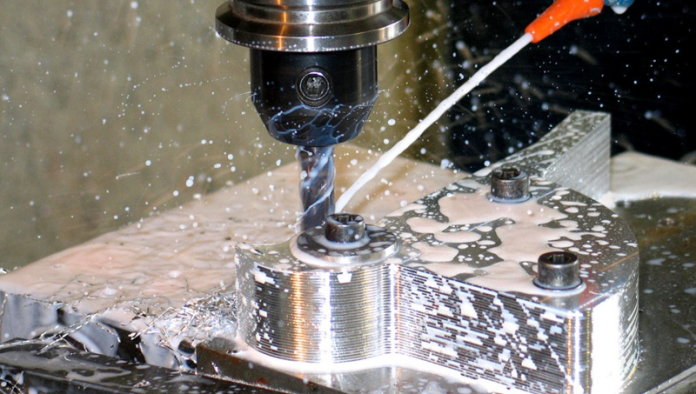In today’s competitive business landscape, small enterprises must find innovative ways to thrive and stand out. One such innovation is CNC machining, which has revolutionized manufacturing processes across industries.
CNC, or Computer Numerical Control, machining is a cutting-edge technology that has transformed traditional manufacturing processes. It involves the use of computer software to control machine tools and 3D printers, resulting in highly precise and efficient production. While initially adopted by large industries, CNC machining is now accessible to small businesses, offering numerous advantages that can significantly impact their operations.
CNC Machining
CNC machining companies leverage advanced computerized systems to precisely control the movements of machine tools and manufacturing equipment. This technology replaces manual operation with automated processes, allowing for unparalleled accuracy and repeatability in production. Whether it’s cutting, milling, or 3D printing, CNC machining can be adapted to various applications.
Cost-Efficiency: Reduced Labor Costs
One of the most significant advantages of CNC machining for small businesses is the reduction in labor costs. Unlike traditional manufacturing, where skilled labor is required to operate machines, CNC systems are operated by trained technicians. This means fewer employees are needed, resulting in substantial cost savings.
Cost-Efficiency: Minimal Material Waste
CNC machines are programmed to optimize material usage. They can make precise cuts, minimizing waste and ensuring that every piece of material is used efficiently. For small businesses, this translates to cost savings and a more sustainable approach to manufacturing.
Precision and Quality: High Accuracy
CNC machining offers unparalleled precision. The computer-controlled systems can perform intricate tasks with micron-level accuracy, ensuring that every product meets strict quality standards. Small businesses can benefit from the ability to consistently produce high-quality parts and products.
Precision and Quality: Consistency in Production
With CNC machining, small businesses can maintain consistency in their production processes. Each item manufactured will be identical to the last, reducing the chances of defects and improving overall product quality. This is particularly crucial for industries where precision is paramount.
Versatility: Diverse Material Compatibility
CNC machines can work with a wide range of materials, from metals and plastics to composites and ceramics. This versatility allows small businesses to diversify their product offerings and cater to a broader customer base.
Versatility: Complex Geometry Manufacturing
Unlike traditional machining methods, CNC technology can handle complex and intricate designs with ease. Small businesses can create products with intricate geometries, giving them a competitive edge in the market.
Speed and Efficiency: Faster Production Turnaround
CNC machining significantly reduces production time. The automation of processes, coupled with high-speed machining capabilities, enables small businesses to meet tight deadlines and deliver products to customers faster.
Speed and Efficiency: Rapid Prototyping
Small businesses can benefit from rapid prototyping using CNC machines. This allows for quick design iterations and product testing, ultimately leading to better final products and reducing development time.
Customization: Tailored Solutions
CNC machining empowers small businesses to offer customized solutions to their customers. Whether it’s personalized engravings, unique designs, or tailored parts, CNC technology can bring these ideas to life efficiently.
Customization: Small Batch Production
Small businesses often deal with limited production runs. CNC machining allows for cost-effective small batch production, enabling them to cater to niche markets and respond swiftly to customer demands.
Reduced Human Error: Enhanced Safety
Automated CNC systems prioritize safety by minimizing human involvement in dangerous tasks. This reduces the risk of accidents and workplace injuries, improving the overall safety record of small businesses.
Reduced Human Error: Lower Rejection Rates
The precision of CNC machining leads to lower rejection rates. Small businesses can minimize the scrap and rework costs associated with defective parts, contributing to improved profitability.
Competitive Advantage: Meeting High Standards
In today’s competitive market, customers expect high-quality products. CNC machining enables small businesses to meet these standards consistently, building a reputation for quality and reliability.
Competitive Advantage: Innovation Opportunities
CNC machining opens doors to innovation. Small businesses can experiment with new designs and materials, fostering creativity and staying ahead of the competition.
Sustainability: Eco-Friendly Manufacturing
CNC machining promotes sustainability by reducing material waste and energy consumption. Small businesses can align with eco-conscious consumers by adopting environmentally friendly manufacturing practices.
Sustainability: Waste Reduction
By minimizing material waste and producing precisely what’s needed, small businesses can significantly reduce their environmental footprint and contribute to a greener future.
Considerations for Small Businesses
While the advantages of CNC machining for small businesses are evident, there are some considerations to keep in mind. Initial investment costs, training requirements, and the need for skilled technicians are factors that should be carefully evaluated.
Conclusion
In conclusion, CNC machining offers small businesses a plethora of advantages. From cost-efficiency and precision to versatility and sustainability, this technology can transform operations and enhance competitiveness. Embracing CNC machining can pave the way for small businesses to thrive in today’s dynamic market.



